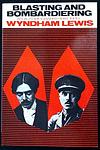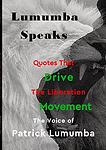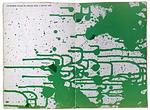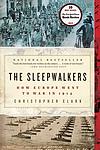The Greatest "Nonfiction, Belgium" Books of All Time
Click to learn how this list is calculated.
This list represents a comprehensive and trusted collection of the greatest books. Developed through a specialized algorithm, it brings together 300 'best of' book lists to form a definitive guide to the world's most acclaimed books. For those interested in how these books are chosen, additional details can be found on the rankings page.
Genres
Countries
Date Range
Reading Statistics
Click the button below to see how many of these books you've read!
Download
If you're interested in downloading this list as a CSV file for use in a spreadsheet application, you can easily do so by clicking the button below. Please note that to ensure a manageable file size and faster download, the CSV will include details for only the first 500 books.
Download-
1. The Guns of August by Barbara Tuchman
"The Guns of August" is a detailed and engaging account of the first month of World War I. The book explores the events leading up to the war, the political and military strategies of the various countries involved, and the critical decisions that shaped the course of the conflict. It presents a vivid picture of the war's early stages, highlighting the miscalculations, miscommunications, and misunderstandings that led to one of the most devastating wars in history.
-
2. The Great War and Modern Memory by Paul Fussell
"The Great War and Modern Memory" is a critical analysis of the impact of World War I on the English society and culture. The author explores the war's influence on literature, language, and symbolism, arguing that the horrific experiences of the war drastically altered public perception and understanding of conflict, honor, and heroism. The book combines literary criticism, history, and social commentary to provide a comprehensive examination of the war's lasting effects on the collective memory of the English-speaking world.
-
3. Blasting And Bombardiering by Wyndham Lewis
This book is an autobiographical account that blends sardonic wit with vivid descriptions of the author's experiences during the first half of the 20th century, particularly focusing on his time serving as an artillery officer during World War I. It offers a trenchant critique of modern warfare and the cultural shifts of the era, as well as an inside look at the author's involvement with the avant-garde art and literary movements of the time. The narrative is characterized by its acerbic humor, intellectual rigor, and the author's distinctive perspective on the chaos and transformation that defined the early decades of the twentieth century.
-
4. Chronicles by Jean Froissart
The book in question is a historical narrative that provides a detailed account of the events, politics, and warfare of the 14th century, particularly focusing on the Hundred Years' War between England and France. The author, a medieval French chronicler, compiled extensive anecdotes, interviews, and reports, offering readers a vivid portrayal of the chivalric age, the lives of nobility, the impact of battles, and the social and political dynamics of the time. His work is considered one of the most important primary sources for the period it covers, offering a blend of factual history and the author's own interpretations and biases, reflecting the complex tapestry of medieval European society.
-
5. The Abandoned Baobab by Ken Bugul
The book is a poignant autobiographical novel that delves into the life of a young African woman who feels disconnected from her roots and culture after returning from studies in Europe. Struggling with a sense of alienation and identity crisis, she spirals into a life of excess and despair in the city, seeking solace in relationships and substances. Her narrative is a raw and honest exploration of postcolonial identity, womanhood, and the search for meaning in a world where she feels like an outsider both in her home country and abroad. The title symbolizes her sense of abandonment and the deep longing for a sense of belonging and understanding.
-
6. Lumumba Speaks by Patrice Lumumba
"Lumumba Speaks" is a collection of speeches and writings by Patrice Lumumba, the first Prime Minister of the Democratic Republic of Congo and a pivotal figure in African politics. The book provides a profound insight into Lumumba's vision for Congo's independence from Belgian colonial rule and his broader ideas on African nationalism and liberation. His impassioned rhetoric, advocating for equality, justice, and the end of colonial exploitation, is presented alongside reflections on the political struggles and the challenges of maintaining unity and sovereignty in a newly independent nation. This compilation not only highlights Lumumba's eloquence and leadership during a critical period in African history but also serves as a powerful testament to his enduring influence on anti-colonial movements worldwide.
-
7. Mémoires by Philippe de Commynes
"Mémoires" is a seminal work of French literature, providing a detailed account of late medieval European politics from the perspective of a diplomat and historian who served various masters, including the Dukes of Burgundy and the French king Louis XI. The author offers a rich narrative of the power struggles, diplomatic maneuvers, and courtly intrigues of his time, while also reflecting on the nature of governance, the ethics of leadership, and the unpredictability of fortune. His observations and analyses have made the work an invaluable resource for understanding the political and social dynamics of 15th-century Europe, as well as a pioneering example of political memoir.
-
8. The Sleepwalkers: How Europe Went To War In 1914 by Christopher Clark
"The Sleepwalkers" by Christopher Clark is a comprehensive account of the events leading up to World War I. The book argues that the war was not caused by any one nation or individual, but rather a combination of factors including nationalism, alliances, and miscommunication. Clark explores the complex political landscape of Europe in the early 20th century and the actions of key players such as Kaiser Wilhelm II and Archduke Franz Ferdinand. The book provides a detailed analysis of the events leading up to the war and challenges traditional narratives of blame and responsibility.
Reading Statistics
Click the button below to see how many of these books you've read!
Download
If you're interested in downloading this list as a CSV file for use in a spreadsheet application, you can easily do so by clicking the button below. Please note that to ensure a manageable file size and faster download, the CSV will include details for only the first 500 books.
Download






